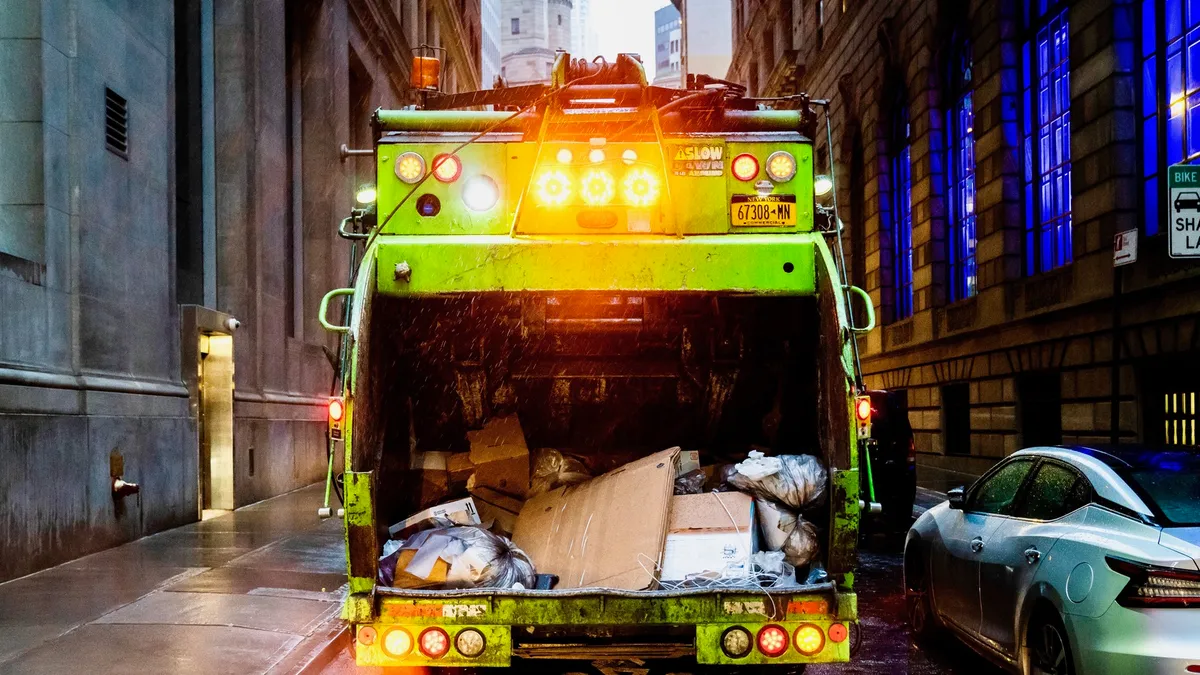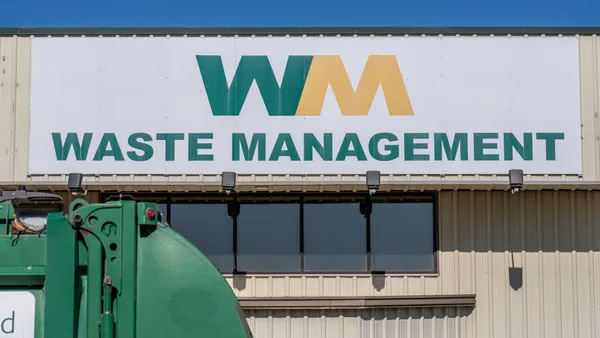The waste and recycling industry pivoted quickly to continue providing essential services during the pandemic's start, and continues to do so as the crisis drags on, but none of it would be possible without frontline workers.
Their jobs have long been demanding, dangerous and relatively unseen. This year, on top of that, there were early fears around contracting the coronavirus via waste, having enough personal protective equipment (PPE), keeping stamina up amid staffing shortages and more.
No comprehensive tally of industry infections has been made public, but multiple sources of information indicate easily more than 1,000 U.S. workers have contracted the virus and multiple died. Many others have missed work due to quarantine precautions or family situations. Every worker unable to perform their duties along collection routes, or at garages, MRFs, transfer stations, disposal facilities and other locations, ultimately left the rest of the workforce more strained
In some cases, residential volumes spiked to record levels, leaving operations chronically behind for weeks. Commercial volumes plummeted to the point some workers saw hours cut or were laid off, and have still not fully recovered.
Normally all of this hard work would have played out largely unseen. But this year, the level of media coverage and public awareness reached a new level.
"People are home to actually see it," said Terrill Haigler, a Philadelphia Streets Department collection worker. "They see us almost get splashed by trash juice, they see us deal with rodents and animals in the cans. So they actually get to see a face to an industry."
On the job since 2019, Haigler has become one of the workforce's public faces this year due to his popular Instagram account "Ya Fav Trashman." Through selling T-shirts, Haigler raised more than $32,000 to fund PPE and cleaning supplies for fellow workers.
Philadelphia's months-long struggle with delayed collections led to negative public reaction, prompting Haigler to engage with residents online. He believes their sentiments changed after hearing about the effort and logistics required to keep the city clean, and hopes that appreciation persists as workers continue advocating for higher pay and additional PPE.
"It's totally shifted the perspective of how people look at sanitation as a job, as an industry, as a career," he said, adding coworkers prefer to keep their heads down but feel similarly. "You have to do want to do this. And people that are doing it, we enjoy doing it, we care for our city, we want the city clean."
Months into the pandemic, workers and their families are still coping with hardship. Hundreds applied for financial assistance through the Sanitation Workers Support Fund started by the Solid Waste Association of North America (SWANA) and Glad. Need has also shown up in requests for more than 2 million masks distributed via SWANA from the federal government.
The efforts of frontline workers also received new recognition as an essential service in 2020. The National Waste & Recycling Association (NWRA) helped obtain that critical designation at the federal level, and in many states, to ensure workers could keep going in the pandemic's early days.
"These men and women are an important part of the COVID-19 response and have earned this recognition from Waste Dive," said NWRA CEO Darrell Smith, noting "the hard work and dedication waste and recycling workers have shown throughout this global pandemic."
Whenever it's time to look back on this difficult period, observers believe the risks taken by frontline workers in the early days – and the challenges they face still as cases surge – deserves ongoing attention.
"Frontline waste and recycling work is hazardous in normal times. During a pandemic, it was feared those dangers would rise to a level that cities, towns, and whole economies would have to reckon with the impact of losing waste and recycling workers ... Nonetheless, they went to work," said Adam Minter, a Bloomberg Opinion columnist and author of books on recycling. "Too often in the history of the waste and recycling industry, frontline workers are invisible to anyone who doesn't directly supervise them. This year, more so than almost any other, they are essential."



 Read more
Read more






